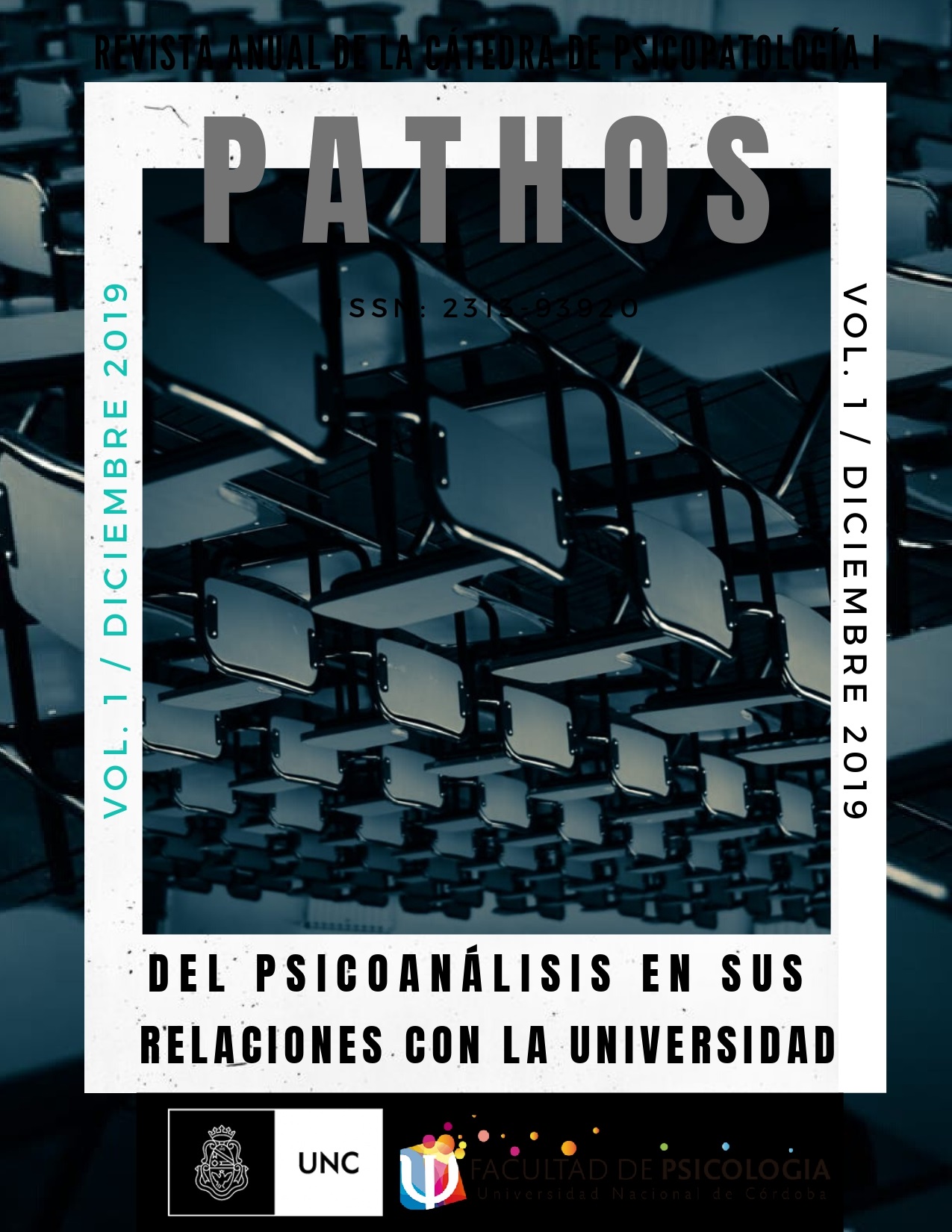Groping: Love and learning in the analytic cure
Keywords:
Love demand, imaginary love, symbolic love, real loveAbstract
In psychoanalysis, there ́s not the idea that love can be learn or teached. But we can try the exercise.The method will be to begin from the lacanian distinction of love in those three regiters: imaginary,symbolic and real. Then, the topic will not be abord by the side of the simetry of love but the dissymmetry in the figures ofthe lover and the beloved. It allows us to rethink the question: To love, ¿can be learned in anpsychoanalysis? Without any pretension neither false promises, this perspective allows us to say yes,an analysis can teaches us to love.The analysis will not satisfied but to articulate the signifiers of the love demand.
Downloads
References
Barthes, R. (1993-1995) Fragments d ́ un discours amoureux. In Euvres Completes. T. III. Paris: Le Seuil.
Duras, M. (1982 [2011])El mal de la muerte. La sonrisa vertical 40. Versión digital en Epub. España:Tusquets.
Goethe, J. (1774 [2003]) “Los sufrimientos del joven Werther” en Johann W. Goethe. Obras Completas. TomoII. España: Aguilar.
Lacan, J. (1953-1954 [2001]) “Los escritos técnicos de Freud” en El seminario de Jacques Lacan. Libro 1.Buenos Aires: Paidós.
Lacan, J. (1972-1973 [2011]) “Aún” enEl seminario de Jacques Lacan. Libro 20. Buenos Aires: Paidós.Lacan, J. (1974) Nota italiana. Recuperado de http://www.eol.org.ar/template.asp?Sec=el_pase&SubSec=articulos&File=articulos/lacan_italiana.html
Downloads
Published
How to Cite
Issue
Section
License
Copyright (c) 2019 Carolina Koretzky

This work is licensed under a Creative Commons Attribution-NonCommercial-ShareAlike 4.0 International License.
Attribution - Non-Commercial - Share Alike (by-nc-sa): No commercial use of the original work or any derivative works is permitted, distribution of which must be under a license equal to that governing the original work.







